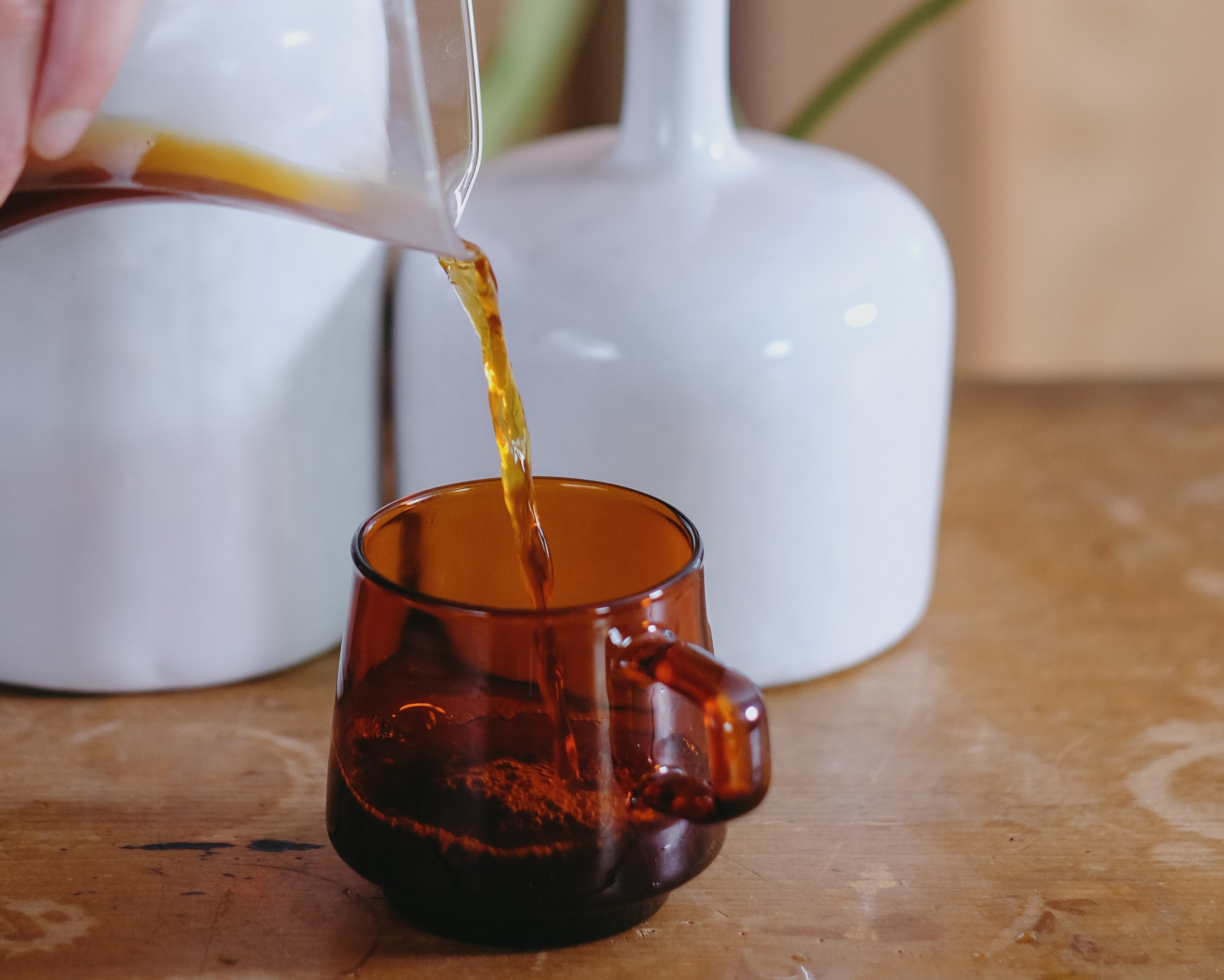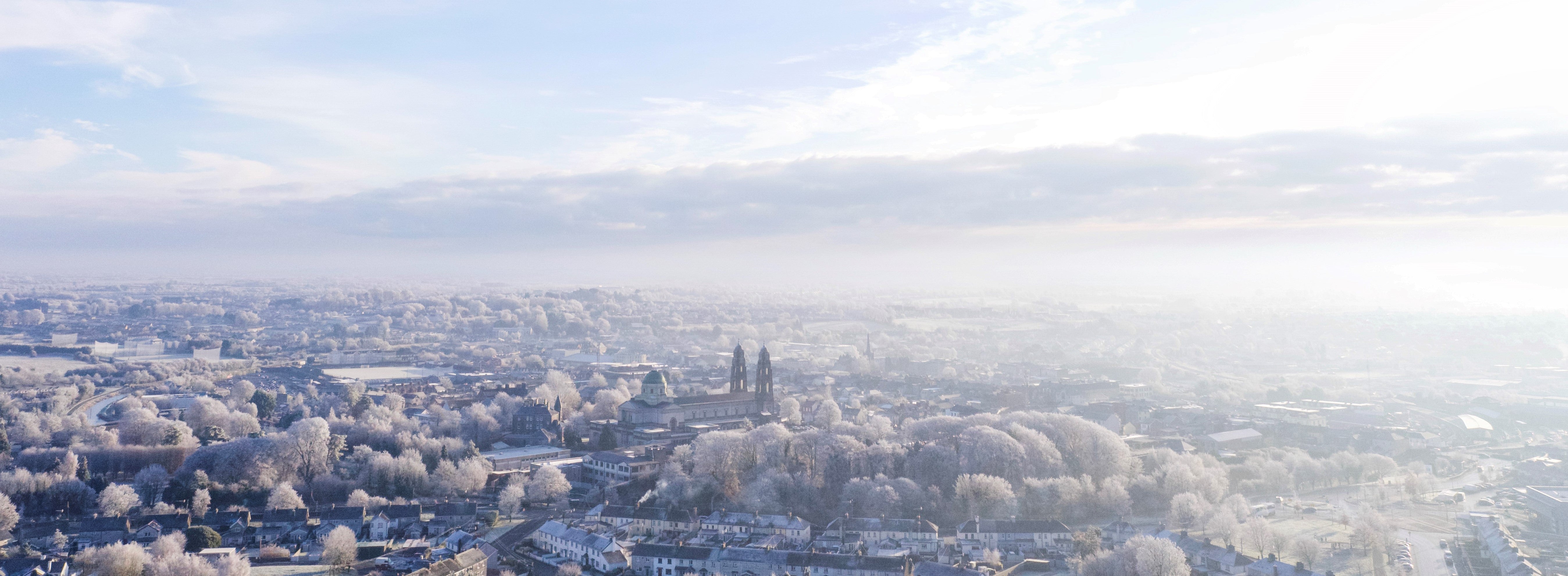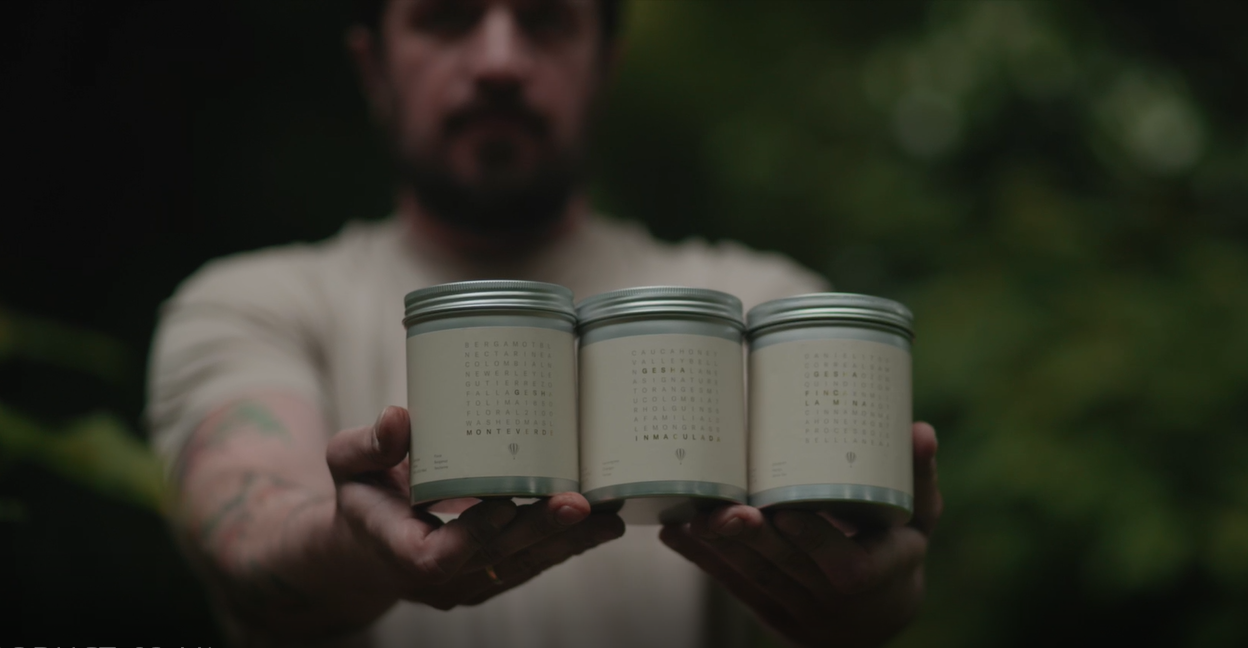News

Standart + Bell Lane Coffee Issue #32
Before we dive into the fascinating tale of Los Castaño Coffee Farms, let's take a moment to uncover why we chose this exceptional coffee. Over the last years the current trends are leading to focus on special fermentation practices that often deliver the cup profile where fermentation is more pronounced than coffee itself. When selecting this Castillo our intention was to remind us that a beautiful crisp washed is still something that will always stay on top of our list. In the world of specialty coffee, where dedication and passion converge, there are stories that stand out. Brothers Alfredo and Eunilver Castaño’s journey is one etched with unwavering determination. We are proud to introduce their exceptional coffee to the Standart community. Producers: Alfredo & Eunilver Castaño Farms: El Recinto & El Futuro Municipality: Santuario Department: Risaralda Variety: Castillo Process: Washed, 360h Extended Fermentation Cup notes: Floral, Raspberry, Lemongrass, Caramel In the picturesque landscapes of Colombia's Santuario region lies a tale of resilience, dedication, and an unwavering passion for coffee. Meet Alfredo and Eunilver Castaño, the brothers behind the renowned Los Castaño coffee farms. Through adversity, conflict, and challenges, their journey has transformed barren lands into thriving coffee plantations. This is all while uplifting their community and producing exceptional coffee. Alfredo and Eunilver Castaño's connection to coffee runs deep. From their earliest memories, they played among coffee plants, learning the art of cultivation from their parents. As youngsters, they embraced the traditions of planting and nurturing coffee, gaining an intimate understanding of the craft. At just twelve years old, they left school to support their family by working full-time on coffee farms. Despite the challenges, Alfredo continued his studies and eventually earned his Baccalaureate. In 1995, the Castaño family purchased a plot of land, marking the birth of El Recinto farm, meaning 'Enclosure.' With relentless determination, they transformed rugged terrain into a conventional coffee farm. Through hard work, they built a wooden dwelling from harvested wood, nurturing both the land and their dreams. However, life had other plans, and the civil war in 1999/2000 forced them to leave their farm for nearly a year. The civil war brought immense challenges. The dense forests that once surrounded farms became corridors for guerrilla movements, disrupting lives and businesses. Forced to flee the city of Pereira, the family endured loss and turmoil. During that time, Eunilver worked as a farm manager and saved diligently. With his savings and a small loan, he purchased a 20-acre coffee farm from his aunt, aptly named El Futuro, or 'The Future.' He restored the neglected land, and both brothers together began their coffee planting El Futuro became a symbol of rebirth, complete with a thriving coffee crop, a home for Eunliver's family, and advanced processing facilities for both of their farms. In 2012, the brothers, along with local families, founded Asocafe Tatama, a collective of high-quality coffee producers. This alliance aimed to enhance coffee value and uplift living standards through collaboration. With 95 families joining the association, their efforts gained momentum. The collaboration attracted Socodevi, an NGO, and Q Processing instructor Hernando Tapasco, who played a pivotal role in shaping the future. Under Hernando Tapasco's guidance, the Castaño brothers discovered new coffee processing techniques. Their pursuit of excellence led them to specialty coffee, where they could surpass commodity prices. Eunilver focused on production, while Alfredo became a Level 2 Q Professor at the Coffee Quality Institute. Their joint efforts honed their skills in fermentation, processing, and drying, resulting in remarkable coffees. The story of Los Castaño coffee farms is a remarkable tale of triumph over adversity. Alfredo and Eunilver Castaño's unyielding passion, even in the face of conflict and challenges, has transformed their family's lands into flourishing coffee havens. Their dedication, unity, and commitment to quality have yielded exceptional coffee and inspired an entire community. BREWING GUIDE Pour-over V60 02 Coffee to water/ratio: 22g coffee to 340g water 1:15.45 Grind: Medium-fine grind. 20 clicks on Comandante, 7 on EK43 (1-11 dial) Water temperature: 96°C Method: Pre-rinse filter, bloom with 50g, at 30 sec pour up to 180g, at 1:15 pour up to 340g final weight. Brew time: 2:30 – 2:45 French Press Coffee to water/ratio: 1:15 Grind: Medium-fine grind. 20 clicks on Comandante, 7 on EK43 (1-11 dial) Water temperature: 97°C Method: Pour total volume, break the crust after 4:00 min, leave to sit and serve at 10:00 SHAKE-UP Having just moved into our new roastery earlier this year, it seems the perfect time for a brand refresh. Until the brand launch this October we will still send out coffee in our existing bags! Alfredo and Eunilver Castaño's connection to coffee runs deep. From their earliest memories, they played among coffee plants, learning the art of cultivation from their parents. As youngsters, they embraced the traditions of planting and nurturing coffee, gaining an intimate understanding of the craft. At just twelve years old, they left school to support their family by working full-time on coffee farms. Despite the challenges, Alfredo continued his studies and eventually earned his Baccalaureate. In 1995, the Castaño family purchased a plot of land, marking the birth of El Recinto farm, meaning 'Enclosure.' With relentless determination, they transformed rugged terrain into a conventional coffee farm. Through hard work, they built a wooden dwelling from harvested wood, nurturing both the land and their dreams. However, life had other plans, and the civil war in 1999/2000 forced them to leave their farm for nearly a year.
Discover more
Verona's Seasons Working with so many talented creatives in Bell Lane, the opportunity to showcase their work is our honour. Outside of the coffee professionals, Roasters, and amazing Baristas, the talented creatives behind our brand are just as important. Verona has been our photographer in Bell Lane for the past four years, giving life to our coffee through creative imagery. Verona has an impressive back catalogue of local photography from our beautiful town of Mullingar. We decided to highlight the seasons over the coming 12 months from our surrounding area that you can share with friends, family, and loved ones The project will highlight our local area, the home of Bell Lane, and where most of our staff live. With the help of The Factory for printing and pulled together by Daisy, we are excited to share this work with you. Pic: Verona McQuaid How it works: For every online order, we will include a postcard. Once received, the choice is yours. We would love you to share this with someone special or to keep and build your collection. We will release each set of seasons online at the end of each quarter; they are free. You can donate when buying, Bell Lane will then donate all proceeds to a local charity at the end of the year. This project is about showcasing our beautiful town, sharing our natural surroundings, and hopefully, making you smile.
Discover more
Gesha became very popular after it was first presented on the WBC stage and that’s how all the “Gesha hype” started. However, it is important to say that the variety originates from Ethiopia and carries beautiful floral, delicate, and sweet notes that I, as a roaster, love. Although today with different fermentation techniques some lots in my opinion are taken to a different level where Geisha profile is muted, and we taste the fermentation style in the cup over the variety. Saying that this was my guideline when I was choosing the lots for us. Since this was our first Gesha release I was looking for lots that in my opinion are free of any “modulated” flavours. As I can recall, I first tried Gesha 7 years ago. It was a natural from Finca Hartmann. It was beautiful and I can still remember the time and place when I had it. Trying so many coffees over the past decade, it is amazing that I can still recall it so well. From that moment on I had this goal that one day I’ll be roasting it myself. So here we are 7 years later and I have three different lots, guess when you work towards something it has to happen one day. Logging more than 20k batches and with so much experience it came to me as a reward and a new challenge that I very much looked forward to. Every roaster has their style so now it was my moment to say this is the way it needs to be done. Timing for premium coffee came naturally to our roastery. We have roasted some beautiful coffee over the last few years that when we were brainstorming about bringing something special we all agreed it had to be Gesha to start with. Since I am a green buyer for the company this was my chance to choose the lots that highlight the characteristics of the variety. The Initial idea was to bring only washed and natural but I was asked to cup La Mina for feedback, it was outstanding - and that’s how we ended up with a washed, natural and honey processed Gesha. Monteverde was the obvious choice for me, as an advocate for washed process Monteverde was just beautiful, super floral, delicate, and pretty. Finding a natural was a bit of a challenge as the majority of lots I’ve cupped were not free of “ferment”. The amazing team from Colombian Spirit called and said “we have the natural that you are looking for” and they were right. Inmaculada is beautiful! The natural process was done so gently that you might ask yourself.. is it a natural? The honey processed La Mina brings a unique experience for those looking to try something with a bit of “funk” When it comes to brewing, I always recommend to everyone to explore and see what works for them when it comes to ratio, water temp, and brew time but we have added our suggested brew guide in the tasting notes for those looking for a guideline. However, I do highly recommend a good grinder like Comandante and using soft water for brewing. When drinking Gesha, expect coffee with no bitterness. It is very delicate and layered and should be enjoyed slowly allowing the flavours to unfold as it cools.
Discover more